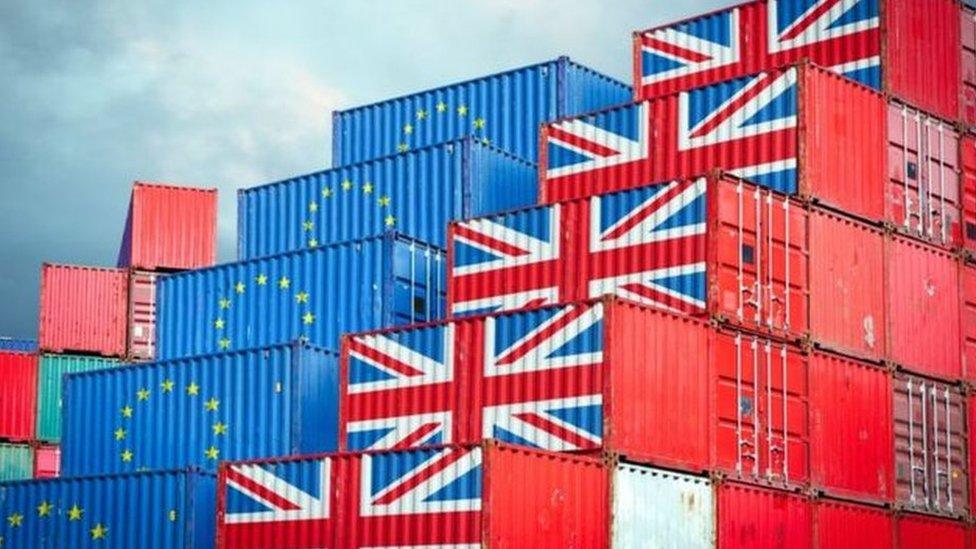EU won't tolerate 'backsliding' on NI Brexit deal
- Published

The EU will not tolerate any "backsliding" on the Northern Ireland part of the Brexit deal, a senior official has warned.
Stefaan de Rynck, adviser to EU's chief Brexit negotiator Michel Barnier, was speaking at an event in London.
On Wednesday, the prime minister again said goods moving from Great Britain to Northern Ireland would have "unfettered access" after Brexit.
But Mr de Rynck said the UK had agreed to apply necessary checks on goods.
He added: "There are clear commitments on the UK which are legally binding and have to be implemented.
"We will not tolerate any backsliding or half measures on this. It is clear what needs to be done by both sides and we will stick to that."
The Brexit deal will mean that Northern Ireland will continue to follow EU rules on agricultural and manufactured goods, while the rest of the UK will not.
Additionally, the whole of the UK will leave the EU's customs union but Northern Ireland will continue to enforce the EU's customs code at its ports.
This means some new checks and processes for goods moving between Northern Ireland and other parts of the UK.
These can only be avoided if the UK decides it wants a closer relationship with the EU than is currently being proposed by the government.
The nature and extent of any checks will only become clear near the end of a one-year transition period which expires at the end of 2020.
There will be no immediate changes to trade processes after Brexit day on 31 January.
On Wednesday, the prime minister gave an "emphatic" assurance to the DUP's Sir Jeffrey Donaldson about unfettered trade.
Sir Jeffrey said that needed to be followed by action.
"Recently all Northern Ireland parties tabled an amendment to the Withdrawal Bill which could have put that commitment into action.
"Whist the government did not accept that amendment at the time it is now incumbent upon them to ensure that the commitments are now delivered upon."